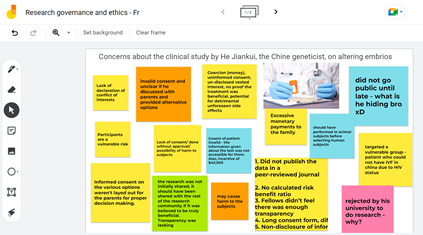
Spruce up lectures to capture the interest of all students
A guide to making lectures more interactive learning experiences that keep students interested
You may also like
Popular resources
Nine out of 10 students would “strongly prefer” or “somewhat prefer” to have in-person lectures that were also recorded, according to a survey by the UPP Foundation Student Futures Commission published in February 2022. Thus, the conversation on how to transform lectures into interactive learning experiences remains topical.
Current best practice recommends incorporating a diverse range of activities into lectures, because this helps students to engage with the material. It can also cater to different learning styles, allows for effective feedback, encourages collaboration and helps students to apply knowledge to real-world situations.
Here I share a few pointers on how educators can spruce up lectures to capture the interest of all students who turn up in person.
Bring current affairs into lectures to help make the material more relevant and engaging for students. Here are some methods I have found useful.
Start the lecture with a current event that is related to the topic you will be discussing. This highlights the relevance of the material at the start and piques students’ interest in the topic. Students tend to remember more information from the first 15 minutes of a lecture, research suggests, a phenomenon called the “primacy effect”, which is related to the way our brains process and store information.
- Resource collection: Rethinking lectures for a digital age
- Beware the pitfalls of making lectures ‘interesting’ and focus on curiosity instead
- Resource collection: Teaching 101 – advice for university educators
By connecting the material to a known current event at the start, the lecture becomes more relatable and understandable. For instance, a lecturer could point to the launch of the largest-ever healthcare study in the UK when discussing the recruitment for research studies; they might bring in the 2022 summer heatwaves in the UK when discussing how to come up with a research topic relating to climate change.
Ask students to analyse news articles directly. I deliver lectures on health-aligned courses, so to develop students’ critical thinking skills I ask them to read a news article about a vaccine that cured breast cancer and to identify the main points, the sources of information and any biases or assumptions in the article. This can help students to develop their analytical skills and encourages them to be more discerning consumers of media and the news.
Incorporate short online quizzes or live polls into lectures in order to keep students engaged. There are various online tools lecturers can use to create their own quizzes and polls with a variety of question types. To avoid incurring costs, use tools that are free to educators or which your institution is already subscribing to.
Online quizzes used during lectures provide instant feedback to students, motivating them to pay attention. The quizzes can also be used by lecturers to assess student understanding during lectures and adjust their teaching methods or content accordingly.
My lectures often include numbers, such as statistics and years. So, to bolster engagement, I tend to include live polls and ask my students to guess the correct numbers. That way students are more likely to remember the relevant numbers and dates when they are revealed.
I also use a live poll to invite students to share their opinions on topics being covered. For instance, when discussing the use of animals in research, I list three different species: a dog, a rat and a worm. The poll results provide a starting point for a discussion about the ethical conduct of animal research.
There are some caveats.
First, it is important to use online quizzes in a thoughtful and deliberate way that supports the overall learning goals of the lecture.
Second, it is handy to prepare a set of poll questions before a lecture and either embed them into your PowerPoint presentation or have a weblink on a slide. Live polls and online quizzes should be properly facilitated. Remember to introduce each activity, allow students enough time to submit their responses and then provide your comments on the results and link back to the topic of your lecture.
Using online tools to support group work during lectures. Last year I experimented using Google Jamboard, a digital whiteboard that provides an easy way to introduce group activities into a lecture: in-person students can collaborate with remote students as well as students who are with them in the lecture, working on the same task at the same time. These groups can work with text, stickers and images. Jamboard has assistive drawing tools, but I found drawing was more difficult because not all students had touch-screen devices.
It worked well during my lecture about research governance. After reading a real-life example relating to concerns about a study on altering embryos, students could post their reactions in the form of notes and images, making the experience more collaborative and aiding critical thinking. See Figure 1 below.

Incorporating a diverse range of activities, news and quizzes can break up your lectures so they are presented in 20-minute chunks. The activities give students a voice during lectures so they feel more directly involved. This improves engagement and bolsters attainment.
Vitalia Kinakh is a lecturer in research methodology in the Faculty of Biology, Medicine and Health at the University of Manchester.
If you found this interesting and want advice and insight from academics and university staff delivered direct to your inbox each week, sign up for the THE Campus newsletter.




